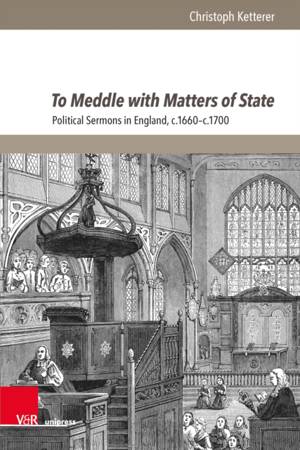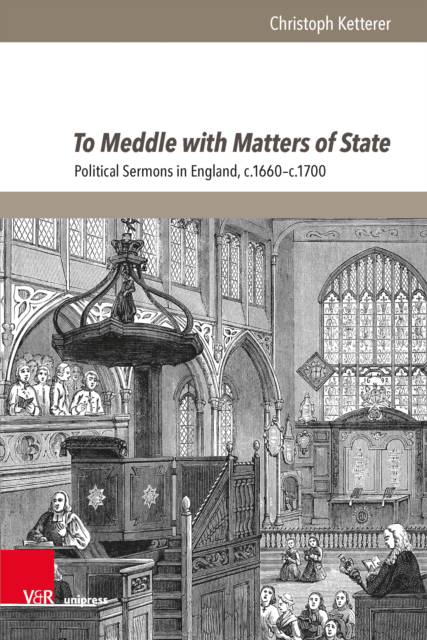
Bedankt voor het vertrouwen het afgelopen jaar! Om jou te bedanken bieden we GRATIS verzending (in België) aan op alles gedurende de hele maand januari.
- Afhalen na 1 uur in een winkel met voorraad
- In januari gratis thuislevering in België
- Ruim aanbod met 7 miljoen producten
Bedankt voor het vertrouwen het afgelopen jaar! Om jou te bedanken bieden we GRATIS verzending (in België) aan op alles gedurende de hele maand januari.
- Afhalen na 1 uur in een winkel met voorraad
- In januari gratis thuislevering in België
- Ruim aanbod met 7 miljoen producten
Zoeken
€ 89,45
+ 178 punten
Omschrijving
The thesis analyses political preaching during the reigns of Charles II (1660-1685) and James II (1685-1688/89). It argues that the political importance of sermons preached at court, before Parliament and in the churches of London, is based on the unsolved political, and confessional tensions of the era. Preachers relatively freely discussed questions of religious tolerance, models of political power, and could offer counsel and criticism to those in power. They were in a position to influence the political and religious discourse of Restoration England. In addition, a refined culture of reception existed, showing that a sermon was as much a performance as a text. Sermons therefore continued to be of central importance for the political and religious discourse of the Restoration.
Specificaties
Betrokkenen
- Auteur(s):
- Uitgeverij:
Inhoud
- Aantal bladzijden:
- 400
- Taal:
- Engels
- Reeks:
Eigenschappen
- Productcode (EAN):
- 9783847110774
- Verschijningsdatum:
- 9/03/2020
- Uitvoering:
- Hardcover
- Formaat:
- Genaaid
- Afmetingen:
- 155 mm x 231 mm
- Gewicht:
- 698 g

Alleen bij Standaard Boekhandel
+ 178 punten op je klantenkaart van Standaard Boekhandel
Beoordelingen
We publiceren alleen reviews die voldoen aan de voorwaarden voor reviews. Bekijk onze voorwaarden voor reviews.









